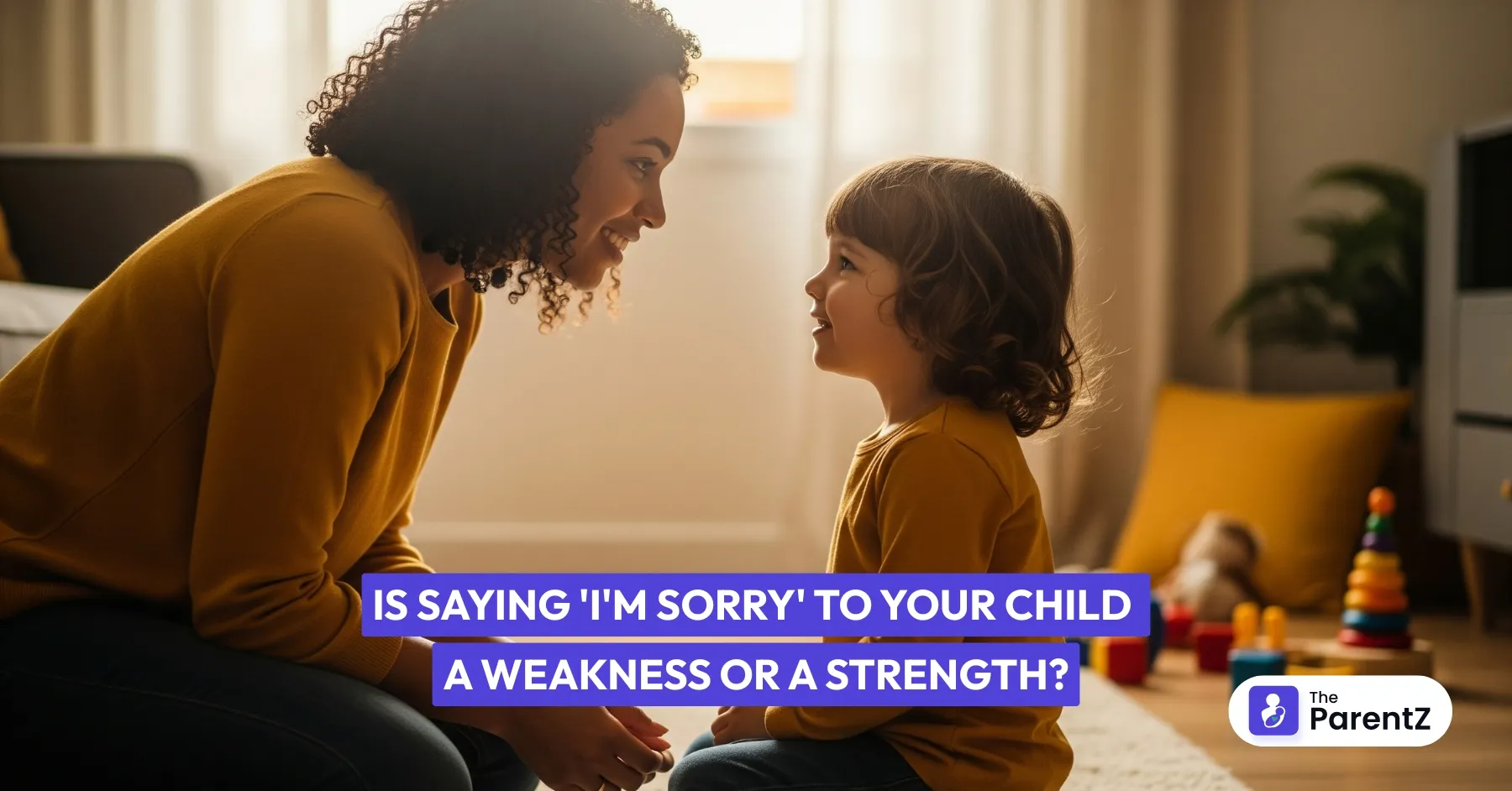Last Tuesday, you lost it. Your eight-year-old spilled juice on the carpet for the third time that week, and you exploded. "Can't you be more careful? Do you think I have nothing better to do than clean up your messes?" The words came out harsher than you intended. Your daughter's face crumpled, and she ran to her room.
Standing there with paper towels in your hand, you felt terrible and thought: Should I go apologize? Or would that make me look weak? Would she stop respecting me if I admitted I was wrong?
If you've been in a similar situation, you're not alone. The internet is filled with advice about parents apologizing to their children, but many of us still struggle with the idea. We worry about losing our authority or being seen as pushovers.
The Fear Behind the Hesitation
Let's understand why we resist apologizing to our kids. Most of us grew up in homes where parents didn't apologize. Our parents' word was final, and admitting mistakes wasn't part of the equation. We learned that authority meant never showing vulnerability.
We carry these beliefs into our own parenting. We think that apologizing will:
- Make our children lose respect for us
- Give them ammunition to argue back later
- Make us appear weak or incompetent
- Blur the lines between parent and child
But what we should understand is that these fears often say more about our own insecurities than about effective parenting.
When Apologizing Shows Strength, Not Weakness
Apologizing to your child is actually one of the most powerful things you can do as a parent. Here's why:
- It models emotional intelligence: When you say, "I'm sorry I yelled at you. I was frustrated, but that doesn't make it okay," you're teaching your child that everyone makes mistakes and that taking responsibility is the mature response.
- It builds trust: Children who see their parents acknowledge mistakes learn that their home is a safe space where honesty is valued over perfection. They're more likely to come to you when they mess up because they know you understand what it's like to be human.
- It actually strengthens your authority: Think about leaders you respect most. Are they the ones who never admit fault, or the ones who own their mistakes and work to fix them? Children respect parents who are strong enough to be vulnerable.
- It teaches accountability: How can we expect our children to apologize for their mistakes if we never model this behavior ourselves?
The Right Way vs. The Wrong Way
Not all apologies are created equal. There's a difference between an apology that strengthens your relationship and one that undermines your parental role.
Weak apologies sound like:
- "I'm sorry you got upset when I yelled" (This shifts blame to the child)
- "I'm sorry, but you shouldn't have spilled the juice" (This isn't really an apology)
- "I'm sorry for everything I do wrong as a parent" (This is too broad and creates anxiety)
Strong apologies sound like:
- "I'm sorry I raised my voice. You didn't deserve to be yelled at."
- "I made a mistake when I said you couldn't go to the party. Let me explain my concerns instead."
- "I'm sorry, I was on my phone when you were trying to tell me about your day. You deserved my full attention."
When NOT to Apologize
Here's where it gets tricky. There are times when sticking to your guns is the right choice, even if your child is upset.
Don't apologize for:
- Setting reasonable boundaries ("No screen time until homework is done")
- Following through on the consequences you've already explained
- Making decisions that prioritize safety over your child's wants
- Having different values or standards from other families
The key is knowing the difference between a mistake and a parenting decision your child simply doesn't like.
Finding Your Balance
So how do you know when to apologize and when to stand firm? Ask yourself:
- Did I handle this situation in a way that aligns with my values?
- Was my reaction proportionate to what happened?
- Did I treat my child with respect, even while addressing their behavior?
- Am I considering an apology because I genuinely did something wrong, or just because my child is upset?
Remember, you can validate your child's feelings without apologizing for your decision: "I understand you're disappointed that you can't stay up late, but bedtime rules are important for your health."
The Long-Term Impact
Children who grow up with parents who apologize appropriately develop several crucial life skills:
- They learn to take responsibility for their own actions
- They understand that relationships require honesty and vulnerability
- They develop emotional resilience because they know mistakes don't define them
- They learn healthy conflict resolution skills
On the other side, children whose parents never apologize often struggle with perfectionism, have difficulty admitting their own mistakes, and may have trust issues in relationships.
Conclusion
The next time you find yourself in a situation where you've made a parenting mistake, take a deep breath. Ask yourself if you acted in a way that you're proud of. If the answer is no, then you know what to do.
Apologizing to your child isn't about being their friend or giving up your parental authority. It's about being the kind of person you want them to become. It's about showing them that strength lies not in never making mistakes, but in how we handle ourselves when we do.
Your children don't need perfect parents. They need ones who are committed to growing and learning alongside them. And sometimes, that growth starts with two simple words: "I'm sorry."





Be the first one to comment on this story.